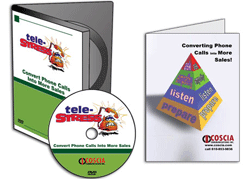 use by millions of Apple iPhone or Google Android smart phone users. App is short for application, or a program that can be accessed through icons on mobile phones. These applications have all kinds of uses, such as employee portals to company information, vendor profiles, entertainment including games and videos, news and weather reports, etc. The number of apps has been growing in geometric terms and is currently trending toward or slightly above 500,000.
use by millions of Apple iPhone or Google Android smart phone users. App is short for application, or a program that can be accessed through icons on mobile phones. These applications have all kinds of uses, such as employee portals to company information, vendor profiles, entertainment including games and videos, news and weather reports, etc. The number of apps has been growing in geometric terms and is currently trending toward or slightly above 500,000.With that many choices and easy accessibility (some are free and others can cost a few dollars), apps have the potential to be a distraction for workers in the field — or an aid. Employees might spend too much time being entertained and less time being productive, which is the same scenario that has been accelerated by personal use of company electronics to access social networking sites.
But as great as the potential for misuse of company and personal phones to access apps during working hours is, there is the potential for productive use of apps as well.
In a recent survey at LinkedIn.com, 61 participants responded to the question: “How much time do you think your field workers use to check their apps?” Here are the results:
Less than 10%: 43% of respondents
10 to 50%: 34% of respondents
Over 50%: 2% of respondents
Only between calls: 5% of respondents
Policy of no personal use during work: 16% of respondents
This small sampling shows that 84 percent of the respondents acknowledged some type of time spent by employees checking phone apps. One respondent, Donald Harris of Dependable Service Associates of Georgia Inc., said, “Smart phones are a double-edged sword. While they do increase productivity in communication and call completion, they can also deter productivity by use with personal phone calls/apps, etc.
“We do have a cell phone usage policy in place whereby personal cell phone usage is to be kept to a minimum, but how do you control that or check up on that with technicians in the field? It is a very tough question that will only get harder to answer as technology continues to increase.”
Jeff Somers of Monsen Engineering sees no harm in app “surfing” as long as the work is getting done. “All of our office and field personnel have smart phones,” he said. “It’s very hard to say how much time they spend on them for personal use. If the work is getting done on time and is the quality we expect, I don’t think we will have a problem. The technology is a tool that needs to be respected and used wisely.”
This new technology has been turning out apps at an incredible rate as even small businesses are finding the benefits of having an app alongside their name. Apps can be a great way for customers to keep in touch with their HVAC contractors. Barlok HVAC of Bethlehem, Pa., developed its own iPhone app that informs users how to keep HVAC equipment running efficiently, as well as provides energy-saving tips. A help button on the app lists contact information, Q&A, service request, and specials — a time-saving convenience for any smart phone user.
HVAC manufacturers are also using apps to help building managers and home owners to communicate with their equipment, which can also help technicians to diagnose and troubleshoot a system before arriving on the job. For example, Mitsubishi Electric uses its meZO app to allow for monitoring and controlling of its HVAC systems such as City Multi® and Mr. Slim® units. The app can be downloaded for free for Apple iPhones. So in this example, a phone app is a useful tool — and not a distraction.
Gary Sippin of Destwin LLC said, “I see a lot of opportunity in this area. Different people need different information. A technician, for instance, can really benefit from having access to a customer’s service records or contract coverage. An HVAC salesperson could also benefit from similar information.”
Scott Moore of Moore Solutions Group LLC summed up what most respondents to the LinkedIn poll said, “I am sure the Pareto Principle (80—20 rule) applies to phone usage,” he said. “Some employees really don’t use the technology and some cannot get enough of it. In the case of a smart phone, I agree with one of the posters — technology is always a double-edged sword and eventually the shine of the new toy wears off.
“I don’t believe most mature adults sit around and play games on company time. If they do, they may need a bit more supervision.”
|
Contractor Develops APP
|








